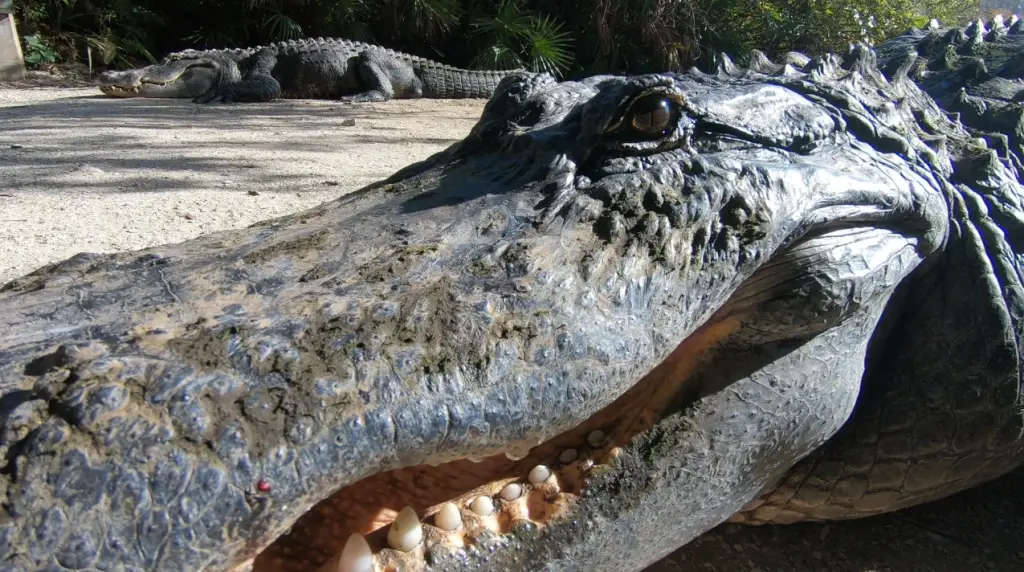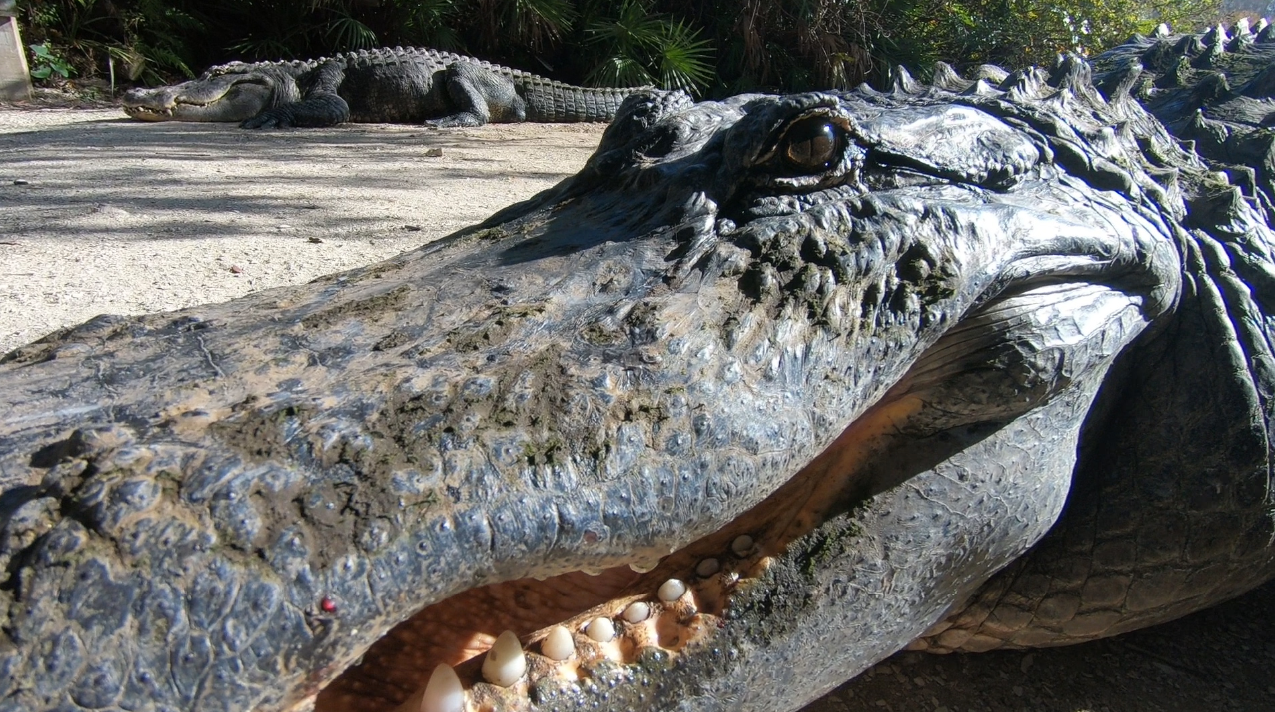Have you ever wondered if all lakes in Florida have alligators? Well, the answer is not as simple as a yes or no. Florida is known for its abundant alligator population, but not every body of water in the state is teeming with these reptiles.
While it’s true that alligators can be found in many lakes throughout Florida, not every lake is home to these creatures. Some lakes are too small or too shallow to support alligator habitats, while others may have been cleared of alligators due to safety concerns for humans. So, before you take a dip in any Florida lake, it’s always best to do your research and take precautions to ensure your safety.
Not all lakes in Florida have alligators, but many do. Alligators are found in freshwater environments, such as lakes, ponds, and swamps. It is important to be aware of your surroundings and take precautions if you are near a body of water in Florida. Never approach an alligator, and keep a safe distance.
Do All Lakes in Florida Have Alligators?
Florida is known for its beautiful bodies of water, including its vast array of lakes. But with that beauty comes a question that has been asked time and time again: do all the lakes in Florida have alligators? The answer is not as straightforward as one might think. Let’s dive in and explore the topic.
Florida’s Alligator Population
Florida is home to over one million alligators, making it the state with the largest alligator population in the world. These reptiles are found in almost every part of the state, including lakes, rivers, swamps, and even in some residential areas. However, just because alligators are prevalent in Florida, it does not mean that every single lake has alligators.
There are many factors that come into play when it comes to the alligator population in a particular lake. These factors include the size of the lake, the amount of vegetation around the lake, and the availability of food sources.
Lakes with Alligators
While not all lakes in Florida have alligators, there are certainly many that do. Some of the most popular lakes that are home to alligators include Lake Okeechobee, Lake Kissimmee, Lake George, and Lake Istokpoga. These lakes are known for their beauty and their abundance of wildlife, including alligators.
It is important to note that while these lakes are home to alligators, it does not mean that they are dangerous places to visit. As long as visitors follow the proper safety precautions, they can enjoy these lakes without incident.
Lakes without Alligators
Contrary to what many people believe, there are indeed lakes in Florida that do not have alligators. These lakes are typically smaller in size and do not offer the right conditions for alligators to thrive. In addition, some lakes are man-made and are not suitable habitats for alligators.
One example of a lake without alligators is Lake Louisa. Located in Lake County, this lake is a popular spot for swimming and fishing, and visitors can enjoy their time in the water without having to worry about alligators.
Benefits of Having Alligators in Lakes
While some people may be afraid of alligators, they actually play an important role in Florida’s ecosystem. Alligators help to control populations of fish and other aquatic animals, which helps to maintain a healthy balance in the ecosystem. In addition, alligators also help to keep the waterways clean by consuming dead animals and other organic matter.
Visiting Lakes with Alligators
If you plan on visiting a lake in Florida that is known to have alligators, there are a few safety tips that you should keep in mind. First and foremost, never approach an alligator. Alligators are wild animals and should be treated as such. In addition, do not feed alligators or attempt to touch them.
When swimming in a lake with alligators, it is important to stay in designated swimming areas and to keep a safe distance from any alligators that may be in the area. If you see an alligator, it is best to move away slowly and calmly.
Lakes with Alligators vs. Lakes without Alligators
When it comes to choosing a lake to visit in Florida, whether or not it has alligators may be a deciding factor for some people. Lakes with alligators offer a unique experience, as visitors may be able to see these amazing creatures up close. However, lakes without alligators offer a different kind of experience, where visitors can swim and fish without worrying about alligator encounters.
Ultimately, the decision on which lake to visit comes down to personal preference. Whether you choose to visit a lake with alligators or a lake without alligators, Florida has plenty of beautiful bodies of water to explore.
In Conclusion
In summary, while not all lakes in Florida have alligators, there are certainly many that do. The presence of alligators in a particular lake depends on a variety of factors, including the size of the lake and the availability of food sources. Whether or not a lake has alligators should not deter visitors from enjoying all that Florida’s lakes have to offer. With proper safety precautions, visitors can safely enjoy these lakes and all the wildlife that call them home.
Frequently Asked Questions
Florida is known for its abundance of alligators, but not all bodies of water in the state have them. Here are some common questions and answers regarding alligators in Florida’s lakes:
What is the likelihood of encountering an alligator in a Florida lake?
Alligators are common in Florida, and they can be found in many of the state’s waterways, including lakes. However, the likelihood of encountering an alligator in a Florida lake depends on several factors, such as the size of the lake and whether it is connected to other bodies of water. Generally, larger lakes are more likely to have alligators, and those that are isolated from other waterways are less likely.
If you are concerned about encountering an alligator while enjoying a Florida lake, it is best to research the specific lake you plan to visit and take precautions such as staying away from the water’s edge and avoiding swimming in areas known to have alligators.
What should I do if I encounter an alligator in a Florida lake?
If you encounter an alligator in a Florida lake, it is important to remember that they are wild animals and should be treated with caution and respect. Do not approach the alligator or attempt to feed it. If the alligator is blocking your path, give it plenty of space and wait for it to move away. If you feel threatened or in danger, slowly back away and seek help from a park ranger or other authority.
It is also important to note that alligator attacks are rare in Florida, but they can occur. To minimize the risk of an encounter, be aware of your surroundings and follow any posted signs or warnings regarding alligators in the area.
Are all lakes in Florida with alligators open for swimming?
Not all lakes in Florida with alligators are open for swimming. Some lakes may have designated swimming areas, while others may not allow swimming at all due to safety concerns. It is important to research the specific lake you plan to visit and follow any posted rules or regulations regarding swimming and alligator safety.
If you do plan to swim in a lake with alligators, it is important to stay in designated areas and avoid swimming near the water’s edge or in areas with dense vegetation where alligators may be hiding. Always supervise children closely and do not allow pets to swim in alligator habitats.
What should I do if I see an alligator in my backyard lake?
If you see an alligator in your backyard lake, it is important to contact a wildlife removal professional rather than attempting to remove the alligator yourself. Alligators are protected by law in Florida, and attempting to capture or harm one can result in serious consequences. A wildlife removal professional can safely and legally remove the alligator from your property.
It is also important to take precautions to prevent alligator encounters on your property, such as securing garbage cans and removing potential alligator habitats like dense vegetation or standing water.
Can I fish in a Florida lake with alligators?
Yes, you can fish in a Florida lake with alligators, but it is important to be aware of your surroundings and take precautions to avoid alligator encounters. When fishing in a lake with alligators, it is best to stay away from the water’s edge and avoid using live bait or fishing in areas with dense vegetation where alligators may be hiding.
If you do encounter an alligator while fishing, give it plenty of space and wait for it to move away before continuing to fish. Remember that alligators are protected by law in Florida, so do not attempt to harm or capture the alligator.
Which lake in Florida has the most alligators?
In conclusion, not all lakes in Florida have alligators, but the majority of them do. It’s important to keep in mind that alligators are a natural part of Florida’s ecosystem, and they play a crucial role in maintaining the state’s balance of wildlife. Visitors to Florida’s lakes should always be aware of the potential presence of alligators and take necessary precautions to stay safe.
While alligator attacks are rare, it’s important to remember that these animals are wild and capable of causing harm if provoked. Visitors should never approach or feed alligators, and always keep a safe distance from the water’s edge. It’s also a good idea to stay informed about any alligator warnings or restrictions in the area, as these can help keep both humans and alligators safe.
Ultimately, Florida’s lakes are a beautiful and unique part of the state’s natural landscape. By respecting the presence of alligators and taking necessary precautions, visitors can safely enjoy all that these lakes have to offer. So whether you’re fishing, swimming, or simply taking in the scenery, remember to always stay alert and respect the wildlife that call Florida’s lakes home.


